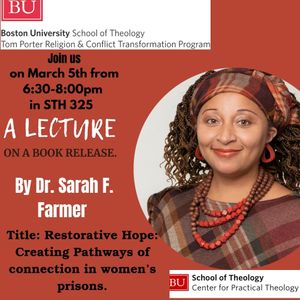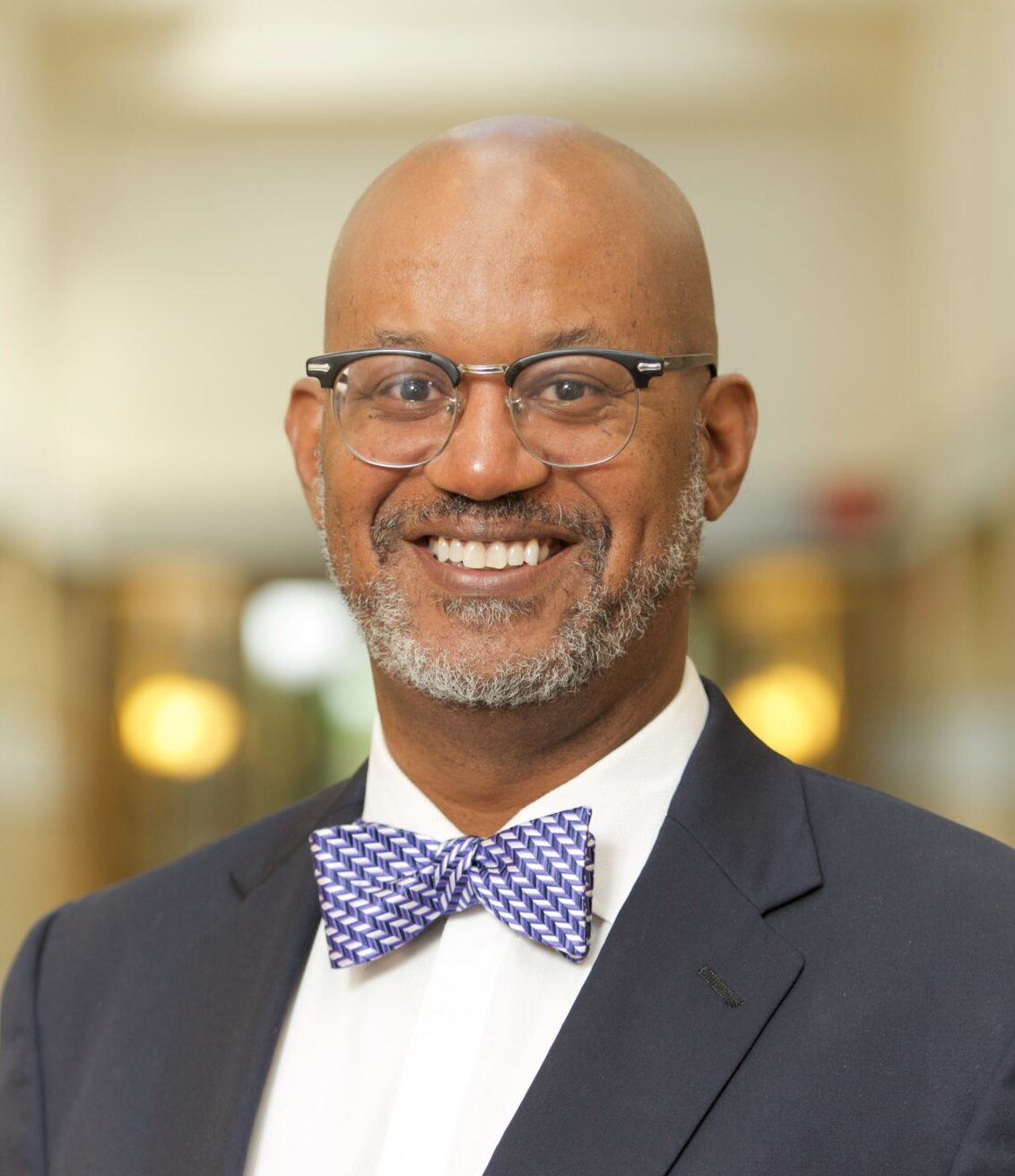Annual Lectures
2025 RCT Lecture
 Sarah F. Farmer, Ph.D.
Sarah F. Farmer, Ph.D.
Associate Director, Wabash Center for Teaching and Learning
“Restorative Hope: Creating Pathways of Connection in Women’s Prisons”
March 5, 2025
Dr. Farmer discussed her recently released book Restorative Hope: Creating Pathways of Connection in Women’s Prisons. Amid dehumanizing conditions, incarcerated people strive to generate hope. As one returning citizen explains, “Hope is not just sitting around waiting for things to change. Hope is not always an individual making things change. Hope is sometimes a community making things change.” What can theologians, teachers, and chaplains do to assist their work?
In answering this question Dr. Farmer amplifies the voices of women who are or have been incarcerated to learn what supports their flourishing. Combining theology and sociology, Farmer shows how theological education can help cultivate the resilience and connection that women describe as life-giving in and after prison. Based in her own ministry, this pedagogy incorporates artistic expression and critical thinking about justice to cultivate agency. Dr. Farmer was joined by BU doctoral student Stacey Yuen and BU alumnus Dr. Amanda J.G. Napior after her lecture for a conversation about the themes of her book and lecture.
2024 Film Screening
A Once and Future Peace Film Screening
November 10, 2024
An animated / live-action documentary exploring the past, present and future of Peacemaking Circles, and how this ancient restorative justice practice has been reimagined to keep youth out of prison. The film tracks the parallel stories of a troubled teen facing serious jail time, and the former Cambodian gang leader serving as his mentor. We were joined by the filmmaker, Eric Metzgar, and by Saroeum Phoung, one of the subjects of the documentary film, to talk about the peacemaking work occurring in Seattle and beyond that is inspired by the practice of peacemakers as taught by Harold Gatensby, Phil Gatensby, and others.
2024 RCT Lecture

AnneMarie Mingo, Ph.D.
Associate Professor of Ethics, Culture, and Moral Leadership
Director, Metro-Urban Institute
Pittsburgh Theological Seminary
“Have You Got Good Religion?”
March 20, 2024
Dr. AnneMarie Mingo was accompanied by Dr. Lenora Taitt-Magubane to discuss her recently released book Have You Got Good Religion?: Black Women’s Faith, Courage, and Moral Imagination in the Civil Rights Movement. The book is an ethical analysis of Black women’s faith-based activism during the civil rights movement. Dr. Mingo conducted interviews with women who participated in the movement and developed the ethical argument of her book based on what she learned in those interviews. One of the women featured is Dr. Taitt-Magubane who was active in the movement and remained active in global social justice work for decades after. This conversation, facilitated by current student Daniela Harrigan, was hosted by Union United Methodist Church here in Boston.
2022 RCT Lecture
David Anderson Hooker, Ph.D.
Counter Stories Consulting and Visiting Professor at BU
“Transforming Historical Harms”
October 20, 2022
Dr. David Anderson Hooker introduced the Transforming Historical Harms framework that he has been central to developing. In this framework, Hooker helps us to see the ways that narratives shape our lives, our sense of self, and our worlds. Narratives, according to Hooker, give us the scaffolding and context for the stories we tell about ourselves and others. Far too often, these stories, shaped by historical narratives, confine us to long-standing forces of harm, injustice, and violence. Dr. Hooker helps us to see the power of co-creating new narratives within which we can live and tell new stories. In his words, he helps us “not [to try] to create a shared narrative of the future. [But to] create a narrative of a shared future.” In other words, when transforming historical harms the work is not to create a new dominant narrative that predetermines our future but the space to narrate a future that is shared.

